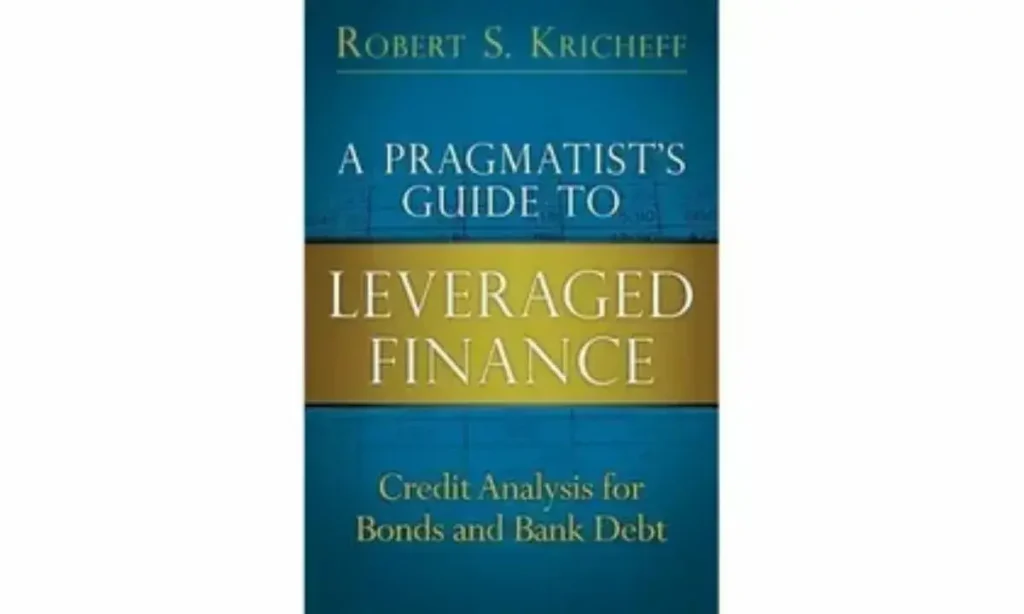(Also appears as “Financeville CraigScottCapital review”, “Craig Scott Capital regulatory issues”, “Is Craig Scott Capital legitimate?” and related variants.)
Investing your money is a serious decision. If you’re evaluating Financeville CraigScottCapital (or references to it), you deserve a clear, unflinching look at its history, regulatory standing, and risk profile. This article gives you an in-depth, no-fluff analysis based on public records, legal filings, and investor best practices.
Table of Contents
Introduction
In a world flooded with financial content, blogs, and investment platforms, it’s easy to get lost in hype and promises. That’s especially true when names like Craig Scott Capital and Financeville come up — they evoke authority, innovation, and opportunity. But behind those names lie a complex web of regulatory action, red flags, and lessons for cautious investors.
Here’s what this article covers:
- The history and structure of Craig Scott Capital
- What led to its expulsion from FINRA
- How Financeville connects to it
- What investors should watch out for in terms of credibility, red flags, and crypto involvement
- Ultimately: should you trust it?
Let’s dig in.
Craig Scott Capital: Company Overview
Company Background
Craig Scott Capital, LLC (CRD #155924) appeared as a broker-dealer operating in New York and offering securities services. (BrokerCheck)
Below are key facts:
| Feature | Detail |
|---|---|
| CRD Number | 155924 (BrokerCheck) |
| Location (registered) | Uniondale, New York (files.brokercheck.finra.org) |
| Registration Status | Expelled from FINRA as of September 2017 (FINRA) |
| Core Activities | Securities trading, brokerage, offering investment products |
While public filings provide snapshots of regulatory actions, much of Craig Scott Capital’s internal operations, revenue, or client base remain opaque. Nothing suggests it ever achieved broad, reputable scale.
Leadership and Key Personnel
Understanding who ran the show is essential. Two names figure prominently:
- Craig S. Taddonio — President, CEO, and majority owner of the firm. (SEC)
- Brent M. Porges — COO and minority owner. (SEC)
- Edward Beyn — Registered representative at Craig Scott Capital. (brokeandbroker.com)
Their public records show serious regulatory allegations:
- Taddonio and Porges were accused of mismanaging supervision and falsifying testimony. (FINRA)
- Beyn was found to have excessively traded (churned) customer accounts and recommended unsuitable securities. (SEC)
These red flags aren’t marginal — they form the foundation of regulatory action against the firm.
Regulatory Issues and Expulsion from FINRA
Understanding FINRA’s Role
Before we review what went wrong, let’s revisit what FINRA is and why its decisions matter:
- FINRA (Financial Industry Regulatory Authority) is a self-regulatory organization (SRO) overseeing broker-dealers in the U.S. It uses rules, audits, examinations, and enforcement to protect investors and maintain market integrity.
- For brokerages, membership in FINRA is a baseline for legitimacy. Losing that membership signals serious compliance failures.
- FINRA uses BrokerCheck to disclose disciplinary history of firms and brokers to the public.
So when FINRA expels a firm, it’s a drastic step — not a slap on the wrist.
Timeline of Craig Scott Capital’s FINRA Actions
Here’s how the case unfolded:
| Date | Action | Notes |
|---|---|---|
| 2016 | SEC files administrative proceedings | Craig Scott Capital is charged for failing to safeguard customer records, using personal email, and deficient records retention. (SEC) |
| 2017 (July) | FINRA Office of Hearing Officers issues decision | Taddonio, Porges, and Beyn are charged; panel finds violations. (brokeandbroker.com) |
| 2017 (September 7) | Craig Scott Capital is expelled from FINRA | The decision becomes final and the firm’s FINRA membership is terminated. (FINRA) |
| Post-expulsion | No monetary sanctions for the firm | Because expulsion is the penalty itself, FINRA did not impose separate fines on the firm. (FINRA) |
An important note: after expulsion, the firm is not allowed to operate as a FINRA member, severely limiting its capacity to act as a registered broker in the U.S. (FINRA)
Reasons for Expulsion
FINRA’s public decision (Default Decision) lays out multiple violations:
- Excessive Trading / Churning
- The firm (through its brokers) engaged in excessive trades — generating commissions without regard to client objectives. (FINRA)
- These trades were inconsistent with client goals, with high commission drag, turnover, and cost-to-equity ratios. (FINRA)
- Churning violates Section 10(b) of the Securities Exchange Act and FINRA rules 2020 and 2010. (FINRA)
- Failure to Supervise / Deficient Procedures
- Craig Scott Capital lacked reasonable supervisory systems and written supervisory procedures (WSPs) to monitor and curb misconduct. (FINRA)
- Owners knew of red flags (e.g. brokers trading aggressively) but failed to act. (brokeandbroker.com)
- False Statements to FINRA / Misleading Responses
- The firm gave misleading or false responses in its written responses to FINRA inquiries, violating Rule 8210 and 2010. (FINRA)
- Taddonio testified falsely that the firm didn’t use or possess recording devices, which was contradicted by evidence. (securitiesarbitrations.com)
- Violations of Telemarketing / Do-Not-Call Rules
- The firm failed to comply with telemarketing rules (e.g., not checking national or firm-specific do-not-call lists). (FINRA)
- Books & Records / Privacy Violations
- In its SEC settlement, Craig Scott Capital admitted it used personal email and third-party faxes to receive sensitive customer data, failing to retain proper records. (SEC)
- The firm violated Regulation S-P (privacy) by failing to protect customer records and lacking policies to maintain confidentiality. (SEC)
- It also violated the books-and-records provisions of the Securities Exchange Act (Section 17a-4) by failing to preserve email and fax communications. (SEC)
Because the firm defaulted (didn’t answer the complaint), FINRA adopted the findings, and the firm could not contest them. (FINRA)
Investor Fallout and Lessons Learned
What happened to clients and the broader investment community?
- Clients who had accounts with Craig Scott Capital likely faced losses from churned trades, high fees, or unsuitable investments.
- Given the expulsion, clients lost access to recourse via FINRA arbitration (at least via the firm itself).
- The case signals that even firms with slick branding and technological promises can fail on basic compliance.
In short: regulatory punishment isn’t just procedural — it often reflects deep breaches of trust that directly harm investors.
Navigating Financial Content in Financeville
If you’ve seen “Financeville CraigScottCapital” mentioned in a blog, social media, or investment forum, you’re likely confronting a hybrid mix of financial content + marketing. Here’s how to parse it.
The Shift to Financial Content
Digital platforms are increasingly positioning themselves as financial media + advisory hybrids. A site may offer news, tutorials, stock picks, or even broker referrals. That’s exactly where Financeville comes in — it blends editorial content with references to Craig Scott Capital, offering readers a narrative around the firm.
This hybrid structure invites risk. Content can be skewed toward promoting a particular entity rather than objective analysis.
How Financeville References Craig Scott Capital
In many reports, Financeville cites Craig Scott Capital in marketing language — e.g. “CraigScottCapital’s investment edge,” or “discover how CraigScottCapital integrates with Financeville content.” These references blur the line between journalism and promotion.
If Financeville makes exaggerated performance claims or doesn’t disclaim affiliations, that’s a warning.
Evaluating Content Credibility
When you read articles or “reviews” about Financeville CraigScottCapital, look for:
- Disclosures / disclaimers: Are conflicts of interest declared?
- Citations to primary sources: Do they link to SEC or FINRA documents?
- Balanced tone: Do they mention risks, not just promises?
- Author credentials: Are writers experienced in finance, regulation, or journalism?
- Evidence of fact-checking: Use of footnotes, references, or editor review.
Stay skeptical of content that sounds like marketing disguised as advice.
Regulatory Concerns: What Investors Should Know
Common Red Flags in Financial Platforms
Here are typical warning signs investors should watch for:
- Guaranteed or very high returns with little or no risk
- Lack of registration or licensing (e.g. no FINRA, SEC, state registration)
- Opaque ownership — no transparency about who runs the company
- No regulatory disclosures or disciplinary history
- High-pressure sales to get you to invest quickly
- Unclear or hidden fees — “contact us for pricing”
- No verifiable track record
- Bad grammar, hyperbole, or sensational claims (e.g. “secrets,” “guaranteed profits”)
If you see multiple red flags, back away.
Importance of Due Diligence
Before you trust a financial platform or firm:
- Check FINRA BrokerCheck for firm and individual histories (for registered brokers)
- Use SEC EDGAR / IAPD to look up investment adviser registrations
- Search for regulatory actions or lawsuits in Google, SEC, FINRA, state regulators
- Ask for financial statements, audited performance records
- See if third-party, independent reviews exist
- Talk to existing or former clients (testimonials are useful if credible)
- Consider consulting a fiduciary financial advisor for a second opinion
Due diligence is your best defense against fraud or misleading firms.
Protecting Yourself from Misleading Advice
- Never invest funds you can’t afford to lose
- Demand written contracts / disclosures
- Avoid platforms that pressure you to deposit money quickly
- Use known, regulated exchanges or brokers
- Keep documentation of all communication
- Escalate to authorities if something looks fraudulent
The Crypto Angle: Craig Scott Capital’s Involvement
Cryptopia and Financeville’s Crypto-Related Content
In many versions of the Financeville CraigScottCapital narrative, there’s mention of Cryptopia or other crypto ventures — either as a vehicle for digital asset investments or as a content vertical on Financeville.
However, I found no credible, verifiable regulatory or firm-level filing proving that Craig Scott Capital legally operated a crypto exchange or fully regulated crypto advisory arm. Many articles simply claim associations without backing documentation.
If you’re seeing claims like “CraigScottCapital operates a crypto exchange,” ask for:
- Licenses (e.g. state money transmitter, SEC crypto regulatory filings)
- Audited books
- Evidence of custody or trading operations
Cryptocurrency Risks for Retail Investors
Crypto investments carry special risks beyond stock or bond investing:
- High volatility — price swings of 10–50% in a single day are not uncommon
- Lack of regulation or oversight in many jurisdictions
- Custody and security risks (hacks, lost keys, exchange failures)
- Counterparty risk — platforms may mismanage user funds
- Fraud and pump-and-dump schemes are common
- Limited recourse if something goes wrong
If any financial platform pushes crypto aggressively without explaining these risks, be cautious.
Best Practices for Cryptocurrency Investments
Here’s a short checklist if you decide to dabble in crypto:
- Use trusted exchanges with strong security and regulatory oversight
- Keep most assets in cold (offline) wallets
- Start with small allocations (e.g. 1–5% of your portfolio)
- Verify smart contracts or tokens before investing
- Don’t chase hype or FOMO
- Keep good records for taxes and compliance
That’s the disciplined way — not the get-rich-quick path.
Should You Trust Financeville CraigScottCapital?
Red Flags to Watch For
Given what we know, several red flags stand out:
- Craig Scott Capital was expelled from FINRA for serious misconduct
- Key executives (Taddonio, Porges, Beyn) were barred from associations or supervisory roles. (SEC)
- The firm settled an SEC action for $100,000, plus penalties paid by the principals, over mishandling customer records and using personal email. (SEC)
- Many Financeville articles lack verifiable sources and appear promotional
- No recent, credible records show the firm regained regulatory legitimacy
If a brand leans so heavily on its past name while lacking legal standing, that’s a signal to tread carefully.
Assessing Overall Credibility
Here’s how to weigh what you see:
- Track regulatory status — since Craig Scott Capital is no longer a FINRA member, it cannot legally operate as a broker in many U.S. contexts.
- Compare to reputable firms — trusted brokers publish audited financials, regulatory disclosures, and robust control systems.
- Look for independent references — do third parties (like financial press, regulatory filings, academic sources) ever quote or verify Financeville’s claims?
- Ask for documentation — if Financeville claims CraigScottCapital offers certain services, request paperwork, licenses, or audited proofs.
Credibility is built on transparency, consistency, and accountability — not persuasion.
Expert Perspective
Analysts and legal commentators treating the Craig Scott Capital saga emphasize this: when leadership fosters a “revenues-first” culture and ignores red flags, the foundation crumbles. (securitiesarbitrations.com)
From a regulatory lens, they see the Craig Scott case as textbook: failure to supervise, excessive trading, and falsified testimony — classic compliance breakdown. (FINRA)
For investors, the lesson is clear: a flashy name or modern platform doesn’t guarantee safety. The backbone is in rules, controls, and accountability.
Conclusion
Craig Scott Capital’s trajectory is a cautionary tale. A firm once presenting itself as innovative and client-centric ended up expelled from a key regulator for actions that arguably hurt clients more than benefited them.
Financeville’s invocation of CraigScottCapital should be met with critical scrutiny — especially when articles blur lines between commentary and promotion, and transparency is lacking.
As an investor, let this case remind you: **don’t trust the name — trust the track record, the regulatory disclosures, and the substance behind the marketing.
Key Takeaways
- Craig Scott Capital was expelled from FINRA in 2017 after findings of excessive trading, supervisory failures, and false statements. (FINRA)
- Its leadership, including Taddonio and Porges, were barred from roles in financial firms. (SEC)
- The SEC action against it centered on mismanagement of customer data and use of personal email, resulting in a $100,000 penalty. (SEC)
- Financeville coverage of CraigScottCapital often lacks independent citation or transparent affiliation.
- Investors must perform due diligence: check regulatory databases, seek document backing, and avoid accepting marketing claims at face value.
- When it comes to crypto, risk is magnified — always favor regulated platforms and cautious, informed allocations.
FAQs About Financeville CraigScottCapital
What is Financeville CraigScottCapital?
It’s a brand / narrative combining a financial content platform (Financeville) with references to CraigScottCapital. It’s not a well-documented, independently verified brokerage currently operating under U.S. regulatory oversight.
Why was Craig Scott Capital expelled from FINRA?
The firm was expelled due to excessive trading (churning), inadequate supervision, violating telemarketing rules, and making false statements to FINRA. (FINRA)
Does Craig Scott Capital still legally operate?
As a FINRA member, no. Expulsion means it lost its broker membership. Whether it uses other jurisdictions or alternative structures is not clearly documented.
Is Financeville a credible source for investment advice?
Credibility depends on how transparent it is with sources, disclosures, regulatory checks, and whether it separates marketing from unbiased commentary.



